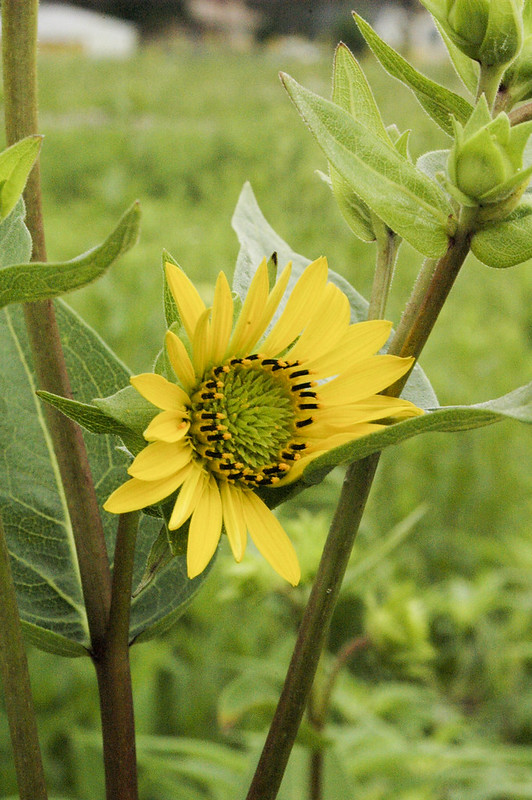
Silphium integrifolium, known as rosinweed, shares some similarities to last month’s featured seed, prairie dock. In fact, prairie dock is often referred to as prairie rosinweed. Both of these perennial plants feature bright, yellow flowers. When cut or broken, their stems produce a resinous sap.
However, you shouldn’t expect traditional rosinweed, also known as whole-leaf rosinweed, to grow as tall as prairie dock. Typically, rosinweed stands 2-3 feet tall, though it can reach heights over 6 feet. It can be found from Wyoming all the way to the east coast. The leaves of rosinweed generally grow in symmetrical pairs, scaling up most of the stem. The plant itself is known to tolerate droughts well.
Native Americans would use rosinweed for a number of purposes including pain treatment. Currently, the Land Institute is working to utilize rosinweed as an oilseed crop.
Rosinweed in CRP
Like other members of the silphium genus, rosinweed can be a great addition to CRP establishment. Its yellow flowers are known to attract a number of pollinators including bees and butterflies. As with compass plant, gall wasps will inject their eggs into rosinweed stems and create a gall. Adult wasps will then emerge the following the season.
White-tailed deer are known to use rosinweed as a food source.
Rosinweed competes well against most prairie grasses and forbs. It typically starts blooming mid-summer, with its blooming period lasting for 1-2 months. When including rosinweed in your CRP mix, it’s important to balance it out with at least two other colors during its respective bloom period. Additionally, you want at least 3 colors for the other two blooming periods.
Choosing the right seed mix is arguably the most critical part of CRP establishment. Even if you do everything else correctly, the wrong seed can ruin your chances of success. At All Native Seed, we make it easy to purchase high-quality CRP seed mixes.
To purchase one of our in-house mixes, click here and enter your information. These mixes have been tested across 400,000 acres of CRP establishment, meeting the strictest standards and providing the best results. We can also provide a quote for seed plans developed by NRCS here.
Alternatively, our parent company FDCE offers full-service CRP solutions. Not only will FDCE handle selecting and buying CRP seed mixes, but they will take care of planting, herbicide application, documentation, and report submission to FSA for cost-share reimbursement. To learn more about what FDCE can do for you, visit their website here.
If you have any questions, don’t hesitate to contact us at quote@allnativeseed.com or 888-224-2004.
